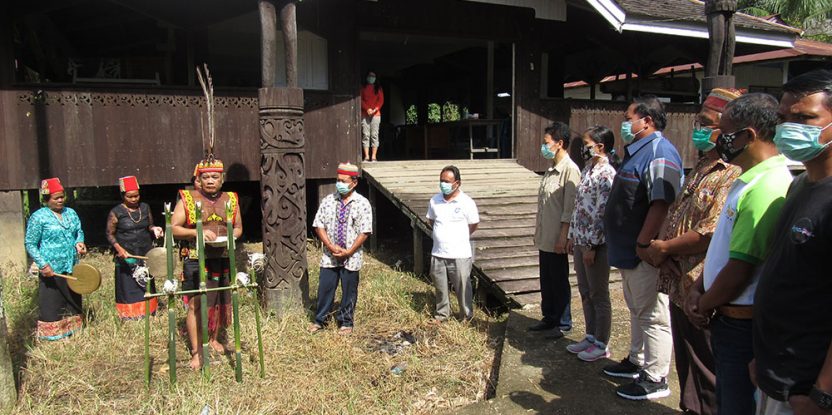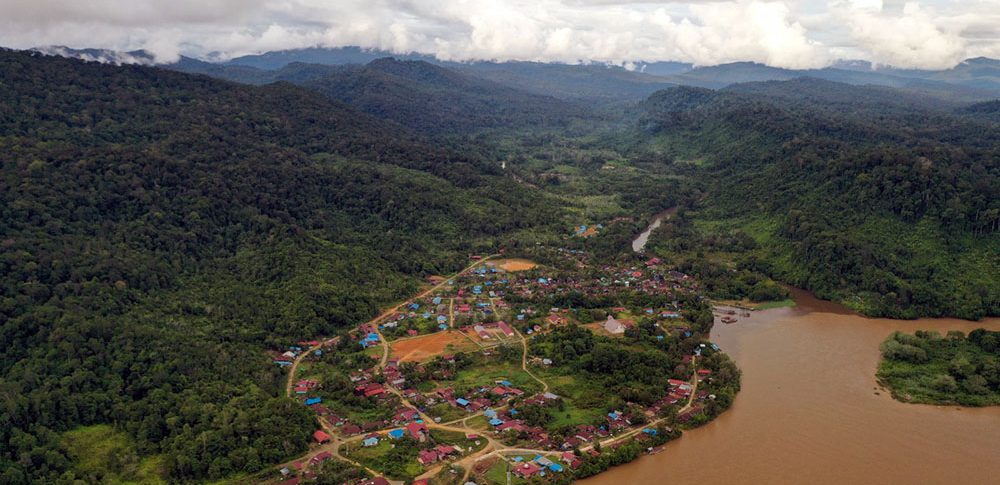
Safeguarding the rights of Indigenous Peoples and local communities (IPs and LCs) has been emphasized as part of reducing emissions from deforestation and forest degradation (REDD+) efforts – but countries including Indonesia often need more improvement in implementing these protections.
Despite some progress in Indonesia – one of three countries included in our review of REDD+ safeguards – there are still gaps in ensuring access by IPs and LCs to their rights to land and natural resources. It remains to be seen how the legal framework on community rights in the context of REDD+ will be translated into action. Indeed, further work is needed to ensure that safeguards are not just a formality, but are implemented to protect and respect the rights of communities and other marginalized groups across the country.
Our review is the first phase of a comparative analysis of experiences with REDD+ safeguards in Indonesia, Peru, and the Democratic Republic of Congo. We believe that as REDD+ countries move towards results-based payments, and given the proliferation of standards for voluntary market transactions, a re-examination of safeguards is needed, including the possibility these could help to strengthen the recognition and protection of IP and LC rights and drive a transformation from initiatives that ‘do no harm’ to ones that ‘do better’.
Safeguard principals for REDD+
The 16th Conference of the Parties (COP) to the United Nations Framework Convention on Climate Change (UNFCCC) in Cancun resulted in promotion of seven safeguard principles for REDD+, with two of the principles focus on the knowledge and rights, as well as participation/ of IPs and LCs.
Countries interpret these principles within their own national legal framework to decide, for example, what is meant by “respect” or “participation” of IPs and LCs. But with no clear guidelines, the interpretation and implementation of REDD+ safeguards differ by country. This results in varied understandings of the experience of exclusion of IPs and LCs and, in some contexts, even different recognition of these communities as deserving a distinct legal status as per relevant international agreements.
Safeguards are interpreted and implemented within the national legal interpretation of relevant rights and political and economic priorities. This national context is fundamental to each country’s safeguards interpretation processes; therefore, as part of our review within the Global Comparative Study on REDD+, we examined legal documents and interviewed legal specialists in Indonesia to understand the level of recognition and protection of the rights of IPs and LCs there, in legislation and public policies in the context of REDD+.
Our findings are summarized with the 10 criteria related to the recognition and respect of the rights of IPs and LCs in Indonesian legislation, which was assessed in terms of its compliance with those criteria: fully align (yes), partial (only some aspects of the criterion are met), or not at all (no). Our research found that Indonesia has partially met half (five) of those criteria and fully met half. Fully met were: legal recognition of historically under-represented groups; alignment with the Cancun safeguards or System Information Safeguards (SIS); recognition of gender inequalities or exclusion of women; recognition of land and natural resource rights of IPs; and formal grievance mechanisms.
Criteria partially met were: recognition of the rights of IPs under international law; recognition of community carbon rights; recognition of IPs and LCs’ rights to free, prior and informed consent (FPIC); formal benefit-sharing mechanisms; and monitoring, reporting and verification (MRV) of compliance with rights and social inclusion issues.

Indonesia: protection and recognition of customary adat rights
Indonesia began its REDD+ journey in 2007, after the 13th Conference of the Parties (COP 13) held that year in Bali. This early commitment led to emergence of pilot projects throughout the country. Two sub-national levels in Indonesia also participated in recent result-based payment schemes, the Forest Carbon Partnership Facility (FCPF) in East Kalimantan and the Biocarbon Fund Initiative for Sustainable Forest Landscapes in Jambi province. With development of REDD+ in Indonesia, discussion on support for protection of IPs and LCs’ rights has become more relevant, including in the discourse over important social elements, such as participation, benefit-sharing and gender issues.
Indonesia does not recognize the term ‘indigenous people’, arguing that almost all Indonesians are indigenous. Instead, “customary adat communities” has been a commonly used term, and defined by the Indigenous Peoples’ Alliance of Nusantara (Aliansi Masyarakat Adat Nusantara, AMAN) and Minister of Home Affairs regulation No. 52 of 2014 “as a group of people who have been living in a certain geographical area for generations and have an ancestral connection, strong relationship with the environment, and a value system with economic, political, social and legal norms”. Several regulations have also provided a definition of customary community, such as the Environmental Law (Law No. 32/3009) and Forestry Law (Law No. 41/1999). Today, Indonesia is home to some 50–80 million customary adat people with distinct cultural practices, ecological knowledge, and resource management practices.
In practice, customary communities would have obtained legal recognition of their identity through district level regulation (PERDA). This step is important as it would allow communities to gain legal recognition over customary forests. The procedure to obtain PERDA is not straightforward across the country, however, and customary groups often require support from allies, including NGOs.
Indonesia’s 1945 Constitution also gave the state control over natural resources, removing this from the customary and local communities that had traditionally managed these resources. However, in 2013, work by AMAN and other NGOs supported a Constitutional Court decision that no longer considered customary forests as state forest. This marked a big step for the recognition of customary communities’ tenure rights and is also part of a wider policy development supporting customary forestry in Indonesia, which has been included as one of five social forestry schemes since 2016. The current target is to devolve 12.7 million hectares of state forest to communities through social forestry. As of 1 December 2022, social forestry programs had covered 5.3 million hectares.